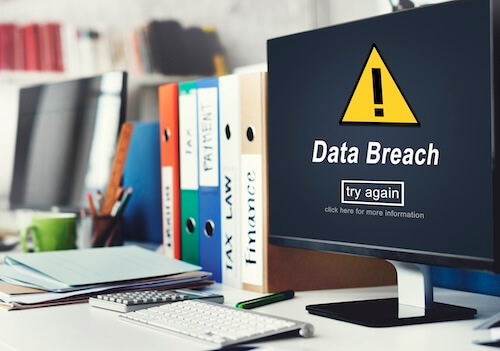Information Governance Best Practices for Remote Work
Explore Information Governance Best Practices for remote work. Learn to manage data, ensure compliance, and enhance business operations.
Boosting data privacy and security in information governance is a crucial battlefield. It's a number one priority for ...
Boosting data privacy and security in information governance is a crucial battlefield. It's a number one priority for many business leaders in organizations like yours.
But, many organizations are clueless about how to handle it. Tackling the issue is what separates an average company from a successful business entity. If you don’t know how to manage data sustainably, you’ll never achieve this level of success.
Maintaining robust data privacy and security isn't easy, folks.
Let's dive into how boosting data privacy and security in information governance is going to help you, and your organization.

In the era where data is considered a valuable asset, understanding its importance within information governance becomes crucial. The rise of stringent data privacy regulations globally signifies that companies must adhere to these rules to avoid heavy penalties.
This implies that any mismanagement or unauthorized access to sensitive data can lead not only to hefty fines but could also cause irreversible damage to your company's reputation.
A strong foundation in information governance provides an effective framework for managing personal information while ensuring compliance with regulatory requirements. It encompasses developing robust policies around how businesses collect, store, use, and dispose of customer data securely.
Information governance, particularly data minimization, is a critical concept for businesses in the digital age. It's not just about reducing storage costs or enhancing system performance; it also involves adhering to stringent regulatory requirements that might impact your business.
Balancing the demands of business needs with privacy regulations such as GDPR is a challenging task for data minimization. Businesses require access to valuable customer or consumer data for strategic decision-making processes and service enhancements.
However, organizations must ensure that they adhere to regulations regarding the collection, storage duration and deletion of personal data as part of a sound data management plan. And if your business isn't performing email archiving, it should. Take a look at our blog post about the importance of email archiving as it relates to compliance.
This necessitates that companies perform comprehensive analyses to discern which pieces of information are truly essential for their operations versus those that might put them at risk of non-compliance. These decisions directly impact the company's ability to ensure compliance while managing sensitive data effectively.
Achieving this equilibrium requires clear policies on secure disposal once nonpublic information no longer serves any legitimate purpose - thereby embodying the principle behind data minimization in practice within your organization's broader approach to its information security measures.
Here are some of the steps you should review:

In the realm of information governance (IG), three pivotal concepts are data governance, data privacy, and data security. These elements not only safeguard valuable customer or consumer personal information but also help ensure regulatory compliance.
The cornerstone for controlling your organization's sensitive data is effective data governance. It entails establishing comprehensive policies and procedures that guarantee high-quality, consistent business operations while managing access to critical company assets and information.
Data privacy strategies, another crucial aspect under the IG umbrella, dictate how companies share customer or consumer personal details with third parties. They guide businesses in aligning their processes with stringent regulations such as General Data Protection Regulation (GDPR).
Last but certainly not least is data security. This concept involves protecting your firm's sensitive personal or consumer data from potential threats like hackers using strong encryption methods among others.
Three important things to consider relating to customer trust and how that impacts data privacy and security in information governance are:
The management of data privacy risks is an integral part of a future-proof business strategy. The key to this lies in the implementation and adherence to certain core process areas.
An efficient inventory management system aids businesses in keeping track of their valuable data assets, including where they reside and who has access rights. This dovetails with a classification mechanism that segregates sensitive information based on its level, thereby enabling appropriate security measures.
In our interconnected digital landscape, third-party relationships pose significant threats to data privacy. It's imperative for companies to establish stringent controls over how these entities handle customer or consumer personal information by setting clear contractual terms around data protection responsibilities, backed up by regular audits.
Data portability empowers individuals to obtain their personal details from one service provider so as to transfer it effortlessly to another entity if needed. Meanwhile, erasure protocols ensure prompt deletion upon request while maintaining proof of compliance - all essential elements ensuring regulatory requirements are consistently met.
Businesses should make it a priority to conduct periodic data protection impact assessments (DPIAs). These DPIAs can help pinpoint potential vulnerabilities early on, allowing proactive steps to be taken before major issues arise.
In the digital age, information governance (IG) is a cornerstone of data security. A robust IG framework doesn't just prevent attacks; it also enables quicker recovery from breaches by anticipating threats ahead of time.
A well-implemented IG strategy ensures that businesses have an in-depth understanding of their valuable customer or consumer personal data assets, including where sensitive information resides and who has access to it. This knowledge aids in rapid identification and containment when breaches occur.

The role data discovery tools play cannot be overstated. They provide visibility into your company's sensitive personal or consumer data sources, allowing for early detection of unauthorized access attempts or potential breaches.
With these tools at hand, affected systems can be quickly located during an incident - drastically speeding up response times while minimizing both financial losses and reputational damage. They may also be able to quickly identify customer data that is affected by a breach.
An effective IG framework isn't static but evolves with changing business requirements and regulatory landscapes like the EU's General Data Protection Regulation compliance needs among others. Data privacy laws are evolving in many areas of the world. Keeping this proactive approach helps organizations stay prepared for future incidents rather than reacting after-the-fact, which can lead to higher financial costs as well as damage to their reputation due to privacy law violations.
This constant updating not only keeps strategies relevant amidst evolving threat vectors but also reinforces a strong culture around effectively managing sensitive customer or consumer personal information within the organization.
As data becomes increasingly valuable in the digital age, it is essential to protect and manage it properly with an effective information governance framework. It's akin to gold in its value and importance for businesses handling personal and consumer information daily.
A strong information governance (IG) framework safeguards these valuable assets from threats while ensuring compliance with evolving data privacy regulations. This protection helps avoid hefty penalties associated with non-compliance or breaches of sensitive customer or consumer data.
To future-proof your business, it's essential to prioritize data privacy within your IG strategy. Implementing stringent measures ensures that access to sensitive information is managed effectively while maintaining integrity throughout its lifecycle.
This approach includes regular assessments of existing security protocols against current regulatory requirements and technological advancements, as well as employee training on responsible handling of personal data.
Data privacy laws are constantly changing - today's compliant practices may not meet tomorrow's standards. Staying on top of the ever-evolving regulations, like GDPR, is critical to constructing a flexible business framework that can quickly adjust to modifications in privacy laws.
An effective communication system across all levels also plays an integral role here by making sure everyone understands how they contribute to maintaining compliance consistently through their actions involving the management or usage of personal customer/consumer information within company operations.
Understanding the importance of data privacy and security in information governance is no longer optional, it's a necessity. It starts with recognizing the concept of data minimization - retaining only what's necessary for business operations.
You've also learned that aligning business requirements with regulatory compliance can help avoid penalties and reputational damage. It's also clear that your organization, as it grows, needs to pay attention to malicious insiders. These might pose significant threats to your data, in some industries and geographies.
The pillars of managing your company's valuable information assets are clear: Data Governance, Data Privacy, and Data Security. Each plays a crucial role in protecting sensitive customer or consumer data.
Best practices for managing data privacy risks involve implementing key process areas such as inventory management, classification systems among others to ensure compliance with industry standards.
Better visibility into your company's sensitive personal or consumer data sources allows you to manage them effectively while ensuring compliance with privacy laws. Utilizing top-notch tools can significantly improve this aspect of your Information Governance program. We've seen in many organizations which implement a robust plan that they are able to reap many benefits.
Explore Information Governance Best Practices for remote work. Learn to manage data, ensure compliance, and enhance business operations.
Explore why information governance is essential for data protection, regulatory compliance, and gaining a competitive edge in business.
Explore the benefits of information governance in businesses, from safeguarding data to improving decision-making processes and regulatory...